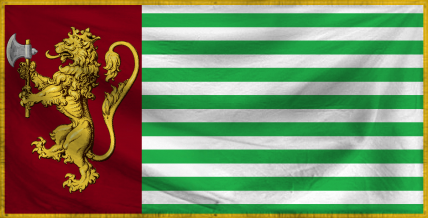
Advertisement

![]() by Cotland » Fri Nov 20, 2020 3:09 pm
by Cotland » Fri Nov 20, 2020 3:09 pm

![]() by Cotland » Sun Nov 29, 2020 6:41 am
by Cotland » Sun Nov 29, 2020 6:41 am

![]() by Cotland » Sun Dec 06, 2020 7:07 am
by Cotland » Sun Dec 06, 2020 7:07 am

![]() by Cotland » Sun Dec 06, 2020 8:27 am
by Cotland » Sun Dec 06, 2020 8:27 am

![]() by Cotland » Sun Dec 06, 2020 1:03 pm
by Cotland » Sun Dec 06, 2020 1:03 pm


![]() by Cotland » Sat Dec 19, 2020 11:51 am
by Cotland » Sat Dec 19, 2020 11:51 am

![]() by Cotland » Thu Dec 24, 2020 4:46 am
by Cotland » Thu Dec 24, 2020 4:46 am

![]() by Cotland » Sun Dec 27, 2020 7:09 am
by Cotland » Sun Dec 27, 2020 7:09 am

![]() by Cotland » Mon Dec 28, 2020 6:06 am
by Cotland » Mon Dec 28, 2020 6:06 am



![]() by Cotland » Sun Jan 03, 2021 6:34 am
by Cotland » Sun Jan 03, 2021 6:34 am

![]() by Cotland » Sun Jan 10, 2021 6:50 am
by Cotland » Sun Jan 10, 2021 6:50 am

![]() by The Kingdom of Apilonia » Sun Jan 10, 2021 1:39 pm
by The Kingdom of Apilonia » Sun Jan 10, 2021 1:39 pm

![]() by Cotland » Sun Jan 17, 2021 3:50 am
by Cotland » Sun Jan 17, 2021 3:50 am

![]() by Cotland » Sun Jan 17, 2021 5:20 am
by Cotland » Sun Jan 17, 2021 5:20 am

![]() by Layarteb » Tue Jan 26, 2021 9:14 pm
by Layarteb » Tue Jan 26, 2021 9:14 pm
Sunday, May 3rd, 2020 | 06:15 hrs [UTC+3]
Ukhta, Komi | Vuktyl-4 Air Station
63° 34' 1" N, 53° 48' 15" E
Sunday, May 3rd, 2020 | 07:30 hrs [UTC+3]
Near Spasporub, Komi | 25 miles from Confederate border
60° 41' 7" N, 49° 8' 13" E
Monday, May 4th, 2020 | 20:35 hrs [UTC-5]
Langley, Virginia | Space Operations Command
37° 5' 19" N, 76° 22' 54" W

Friday, May 15nd, 2020 | 14:00 hrs [UTC+3]
Perm, Confederacy of the Urals | Zhulanovo
59° 56' 39" N, 56° 41' 5" E

![]() by Cotland » Sun Feb 07, 2021 3:52 am
by Cotland » Sun Feb 07, 2021 3:52 am

![]() by Cotland » Sun Feb 14, 2021 9:39 am
by Cotland » Sun Feb 14, 2021 9:39 am


![]() by Cotland » Tue Feb 16, 2021 10:35 am
by Cotland » Tue Feb 16, 2021 10:35 am

![]() by Cotland » Thu Feb 25, 2021 7:40 am
by Cotland » Thu Feb 25, 2021 7:40 am

![]() by Cotland » Sun Feb 28, 2021 6:32 am
by Cotland » Sun Feb 28, 2021 6:32 am

![]() by Layarteb » Sun Feb 28, 2021 3:43 pm
by Layarteb » Sun Feb 28, 2021 3:43 pm
Sunday, June 7th, 2020 | 07:45 hrs [UTC+3]
Syktyvkar, Cotland | Syktyvkar Air Force Station
61° 34' 53" N, 50° 31' 15" E
Tuesday, June 8th, 2020 | 22:30 hrs [UTC+3]
Berezniki, Cottish-controlled Perm | Berezniki Airfield
59° 34' 29" N, 56° 51' 19" E
Friday, June 12th, 2020 | 18:00 hrs [UTC+3]
Berezniki, Cottish-controlled Perm | Berezniki Airfield
59° 34' 29" N, 56° 51' 19" E
Friday, June 12th, 2020 | 19:30 hrs [UTC+3]
Berezniki, Cottish-controlled Perm | Berezniki Airfield
59° 34' 29" N, 56° 51' 19" E

![]() by The Kingdom of Apilonia » Sun Feb 28, 2021 5:09 pm
by The Kingdom of Apilonia » Sun Feb 28, 2021 5:09 pm

![]() by Layarteb » Sat Mar 13, 2021 11:18 am
by Layarteb » Sat Mar 13, 2021 11:18 am
Monday, June 15th, 2020 | 07:00 hrs [UTC-5]
Layarteb City, New York | Fortress of Comhghall
40° 41' 28" N, 74° 0' 58" W
Tuesday, June 16th, 2020 | 08:00 hrs [UTC+5]
Perm City, Cottish-occupied Perm | Perm City
57° 59' 36" N, 56° 15' 10" E
Wednesday, September 2nd, 2020 | 10:00 hrs [UTC-5]
Layarteb City, New York | Fortress of Comhghall
40° 41' 28" N, 74° 0' 58" W

![]() by Cotland » Thu Apr 01, 2021 5:09 am
by Cotland » Thu Apr 01, 2021 5:09 am

![]() by Cotland » Thu Apr 01, 2021 6:44 am
by Cotland » Thu Apr 01, 2021 6:44 am
Advertisement
Return to International Incidents
Users browsing this forum: Azmeny, European Federal Union, Google [Bot], LFPD Soveriegn, Rapaldegia Bagazis, Republic Under Specters Grasp, Republics of the Solar Union, The Eur-asian Federation
Advertisement